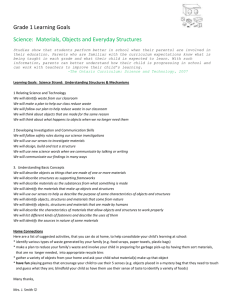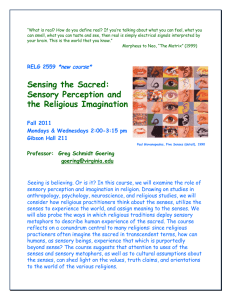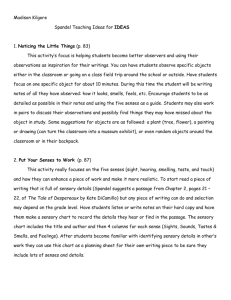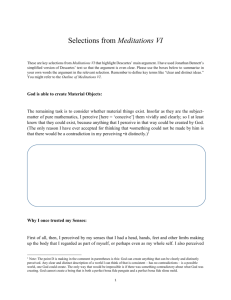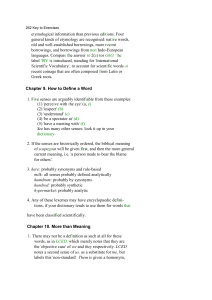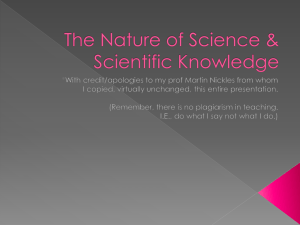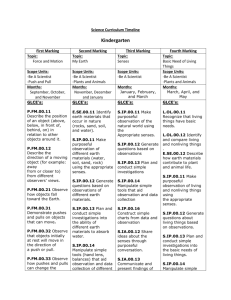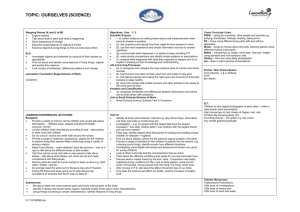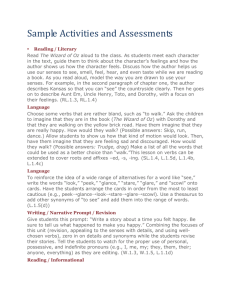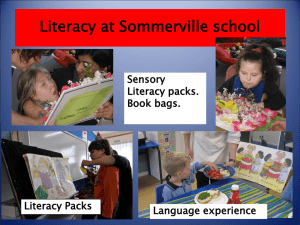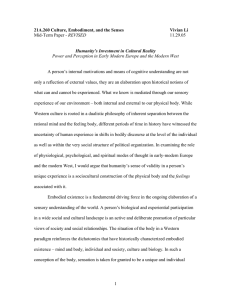Direct Experiences & Learning: A Presentation
advertisement
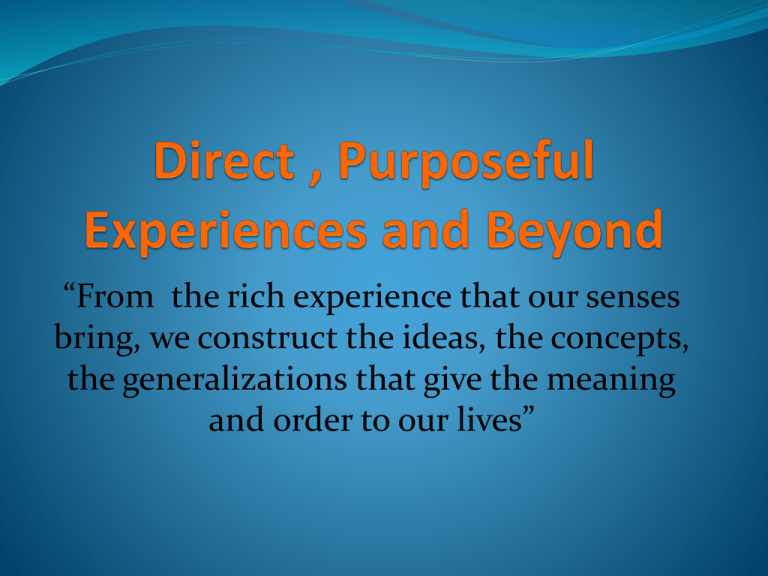
“From the rich experience that our senses bring, we construct the ideas, the concepts, the generalizations that give the meaning and order to our lives” Read the following testimonies “the meanings of negative discrimination index and positive discrimination index became crystal clear to me only when we did an item analysis of our test items - Grade VI teacher “It was only when I went to the Manila Zoo that I learned that a giraffe is that tall and an elephant is that big.” - Grade 4 pupil My husband and children used to do computer job for me which made me totally dependent on them. The problem was they were not always around to help me with my reports, lecture notes, etc. To redeem myself from my helplessness, I forced myself to learn, first of all encoding, then sending email and surfing the internet. What encouraged me was my seven year old grand daughter could do what I was not capable of doing. Now I feel liberated. I can encode and print my lectures, send emails, surf the internet, and do powerpoint presentation, even when no one is around to help only after I had to do these things myself - Graduate School Professor My boss assigned me to put the transparencies on the plate of the overhead projector while he delivered his lecture on stage. It turned out that the first transparency was not positioned upright for the audience. I repositioned the transparency but it was still inverted. I felt nervous and the woman in the audience who was seated nearby came to my rescue. I have never forgotten that experience but having been assigned the task repeatedly, I can say I am now expert at the OHP. - Secretary to the Dean Discussion Questions: Do you have a similar experience? Share Think of a skill you have. How did you acquire it? Think of a concept. How did you learn it? What are referred to as direct, purposeful experiences? These are our concrete and first hand experiences that make up the foundation of our learning. These are the rich experiences that our senses bring from which we construct the ideas, the concepts, the generalizations that give meaning and order to our lives (Dale, 1969) Example of direct activities: Preparing meals Making a piece of furniture Performing a laboratory experiment Delivering a speech Taking a trip In contrast, indirect experiences are experience of other… people that we observe, read or hear about. They are not our experiences but still experiences in the sense that we see, read and hear about them. They are not first hand but rather vicarious. Climbing a mountain is first hand, direct experience. Seeing it done in films or reading about it is vicarious, substitute experiment. It is clear therefore, that we can approach the world of reality through the senses and indirectly with reduced sensory experience. Why are these direct experiences described to be purposeful? They are experiences that are internalized in the sense that these experiences involve the asking of questions that have significance in the life of the person undergoing the direct experience. These experiences are undergone in relation to a purpose, i.e. learning It is done in relation to a certain learning objective. John Dewey has made his fundamental point succinctly: “An ounce of experience is better than a ton of theory because it is only in experience that a theory has vital and verifiable significance. An experience, a very humble experience, is capable of generating and carrying an amount of theory (or intellectual content), but a theory apart from experience cannot be definitely grasped as a theory. It tends to render thinking, or genuine theorizing unnecessary and impossible” If direct, purposeful experiences or first hand sensory experiences make us learn concepts and skills effectively, what does this imply to the teaching- learning process? 1. Let us give our students opportunities to learn by doing. Let us immerse our students in the world of experience 2. Let us make use of real things as instructional materials for as long as we can 3. Let us help our students develop the five senses to the full to heighten their sensitivity to the world 4. Let us guide our students so that they can draw meaning from their first hand experiences and elevate their level of thinking. Summing Up Direct experiences are first hand experiences that serve as the foundation of learning. The opposite of direct experiences are indirect or vicarious experiences Direct experiences lead us to concept formation and abstraction. We should not end our lessons knowing only the concrete. We go beyond the concrete by reaching the level of abstract concepts. Making the connection 80% 70% 60% 50% 40% 30% 20% 10% 0% Here is an approximation of how much persons learn through the five senses. Connect this graph to sensory experience to learning. Take note of the number of senses involved starting with the base of the cone. Does this graph relate to what you learned about direct purposeful experience? Do you see any relation or connection? Any principle you learned from the Principles of Teaching that connects to learning by direct experience? Our lack of understanding is often due to our lack of attention. Our lack of attention is usually due to a failure in the use of our senses. Connect this to firsthand of sensory experience. Emerson wrote: Seven men went through a field, one after another. One was a farmer, he saw only the grass; the next was an astronomer, he saw the horizon and the stars; the physician noticed the standing water and suspected miasma; he was followed by a soldier, who glanced over the ground, found it easy to hold, and saw in a moment how the troops could be disposed; then came the geologist, who noticed the boulders and the sandy loam; after him came the real-estate broker, who bethought him how the line of the houses lots should run, where would be the driveway, and the stables. The poet admired the shadows cast by some trees, and still more the music of some thrushes and the meadow lark. What does this paragraph imply about people’s interpretation of the concrete? How can we arrive at a more accurate interpretation of what we experience?
